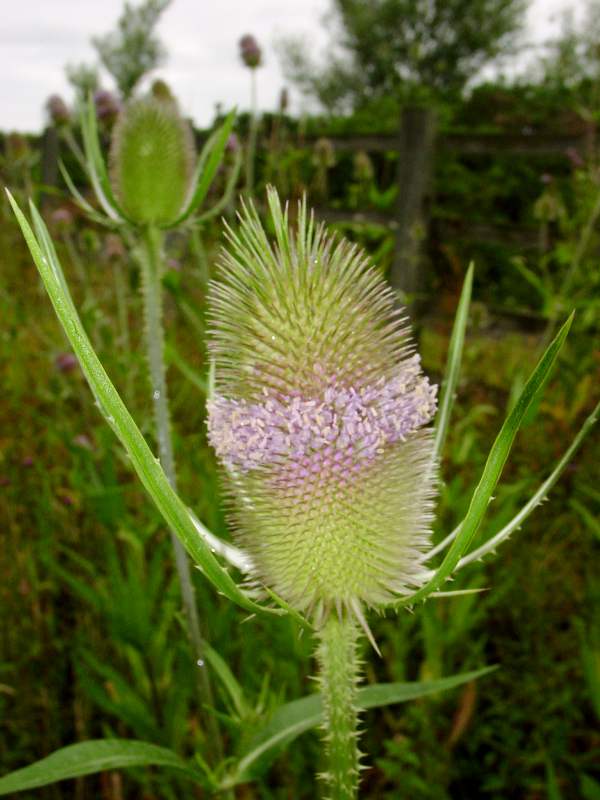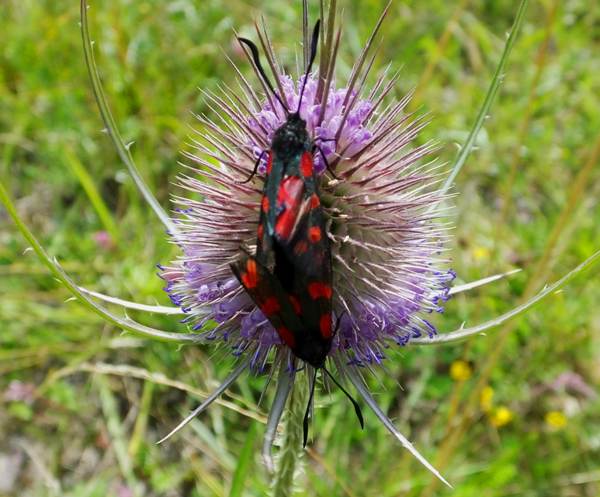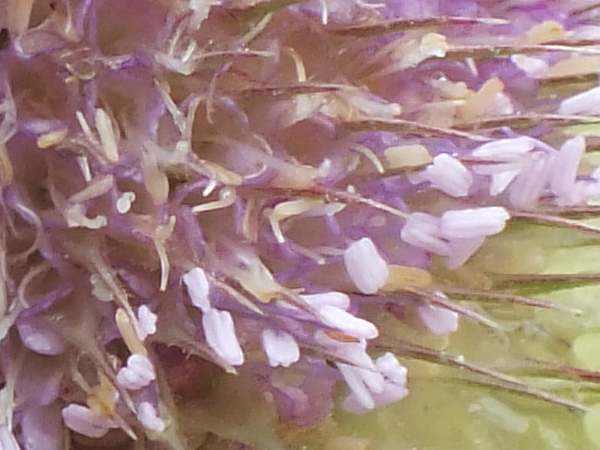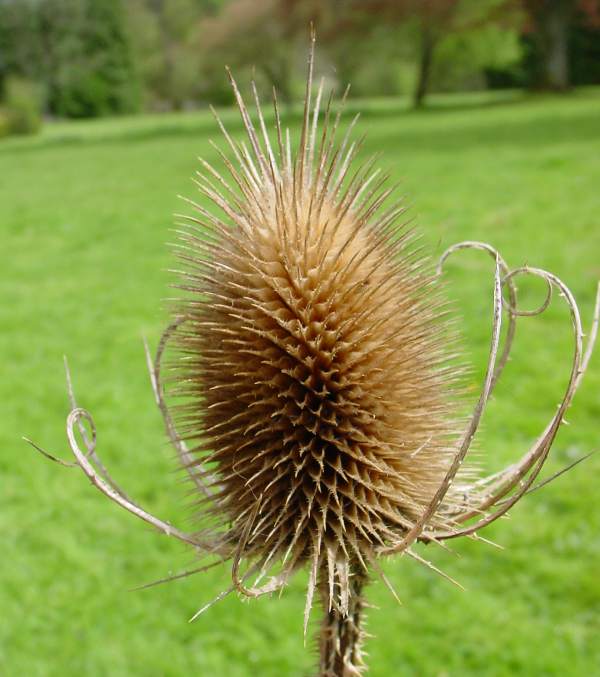Dipsacus fullonum - Teasel
Phylum: Magnoliophyta - Class: Equisetopsida - Order: Dipsacales - Family: Dipsacaceae

Above: Teasels in mid July on the island of Jersey
The Teasel is a close relative of the various species of honeysuckle and scabious.
Description
Teasels are stately plants, sometimes reaching a height of 2m and rarely less than 1m.

There are numerous sharp thorns all the way up the stems, which are sometimes branched, and a ellipsoidal flower head at the tip of each branch. The tiny pinkish-purple flowers open in rings around the flower heads, whose seeds turn brown in late autumn and then usually persist through the winter months.

Distribution
Found throughout Britain and Ireland, but more common in the south, Dipsacus fullonium is native to Europe, Asia and North Africa. Elsewhere in temperate regions - including North and South America, Australia and New Zealand - this is an introduced alien species.
Habitat
This tall riverside and disturbed wasteland plant is particularly common beside the upper River Severn near Llanidloes in Wales, but there also are plenty more places where you will find them. They can often be spotted on motorway verges and sometimes in field margins.

Blooming times
The pale purple flower heads are at their finest in July and August.

Uses
Many people like to pick Teases and keep them as dried flowers for indoor decoration. As with all wild flowers, taking too many from one place can only mean fewer flowers in future years. (We took just these photographs to remind us of what we saw!)
Birds, including the lovely Goldfinch, are attracted to the seeds of these flowers in late summer.
Sue Parker's latest ebook is a revised and enlarged edition of Wild Orchids in The Burren. Full details here...
Buy it for just £5.95 on Amazon...
Please Help Us: If you have found this information interesting and useful, please consider helping to keep First Nature online by making a small donation towards the web hosting and internet costs.
Any donations over and above the essential running costs will help support the conservation work of Plantlife, the Rivers Trust and charitable botanic gardens - as do author royalties and publisher proceeds from books by Pat and Sue.

